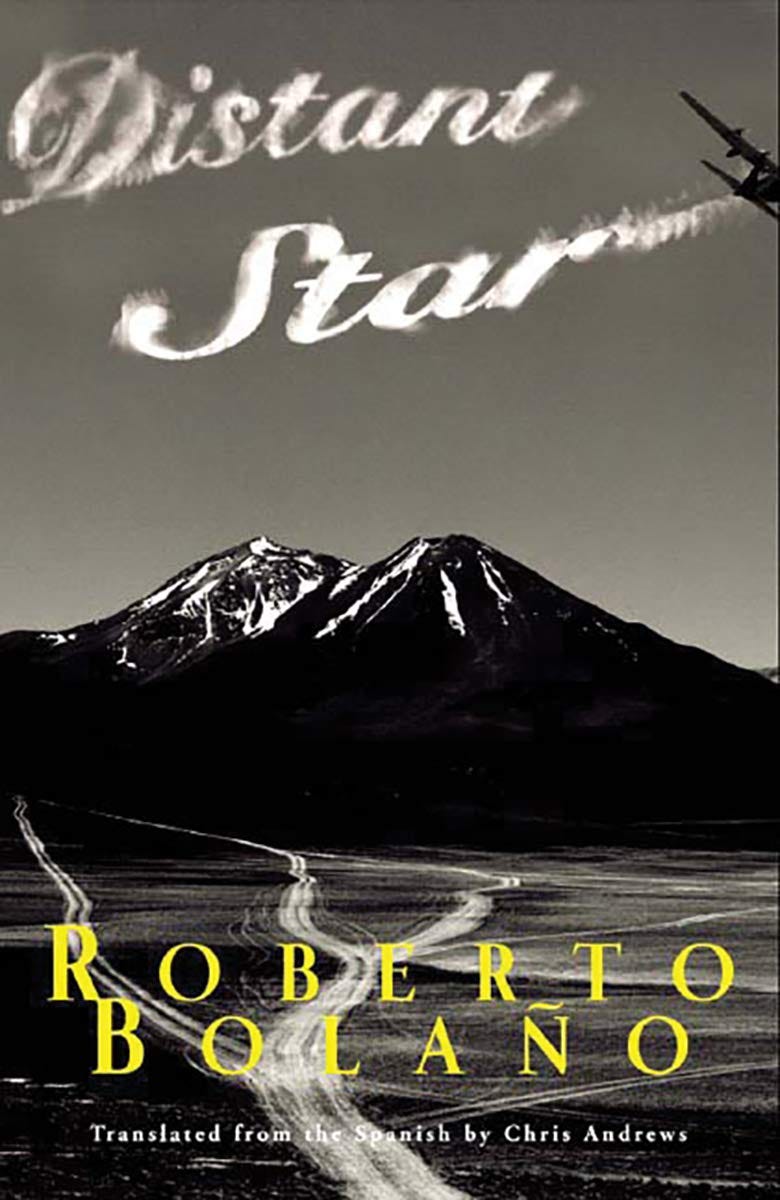One of Bolaño’s more imaginative novels. This 1996 novel follows something of a mystery about a man named Alberto Ruiz-Tagle, a man the unnamed narrator first encounters in his college poetry workshop. After the 1973 Chilean coup, the narrator winds up in a prison camp for undesirables and while there he witnesses he bizarre spectacle of an aviator flying his plane over the Andes, writing nationalist slogans in the sky. The aviator turns out to be Alberto Ruiz-Tagle, now a pilot in the Chilean Air Force, but using his real name Carlos Wieder. This spectacle is Wieder’s attempt at launching ‘The New Chilean Poetry’, a project which involves skywriting, torture, photography, murder, and verse.
Information about Wieder comes in drips and drabs and the narrator’s obsession with Wieder’s story propels the narrative along like an old-fashioned detective novel. It begins years earlier, while the narrator is attending Wieder’s (then Ruiz-Tagle’s) poetry workshop. A dour man, he only has interest in two beautiful twin sisters, Veronica and Angelica Garmendia. After making numerous visits to the sisters’ home, one day they wind up brutally murdered, along with other members of their family, and soon other student members of the Chilean literature world begin to suddenly disappear one by one. It is while witnessing the skywriting spectacle at the prison camp that the narrator learns the pilot and the former poetry workshop teacher are one and the same.
The narrator becomes obsessed by Wieder and wants to know his story, who is actually is, and begins to believe that Wieder is the ‘invisible hand’ behind most of the evil deeds committed during the Pinochet regime. Years later, while the narrator is living in Barcelona, he realizes his fate is forever intertwined with the mysterious Wieder when a private investigator come looking for him, seeking his help in locating Wieder by having the narrator look for Wieder’s hand behind numerous Neo-Fascist poetry publications.
The story itself would have probably made an interesting short story but Bolaño mixes things up by telling stories about his fellow writers and students and their college days in Chile, complete with obscure references to innovative Latin American writers and poets, interesting tales about some of the people that he had known (which could stand alone as short stories in their own right), and the effects the 1973 coup which ousted Salvador Allende had on a whole generation of writers, artists and intellectuals (not to mention the common people) and, lastly, how the Pinochet regime found them particularly dangerous to their rule. Taken together, the novel is clearly about this, with the Wieder narrative the vehicle to move the story forward.
A highly imaginative and interesting novel to say the least, full of great writing and a dose of ironic humor which slightly takes the edge off a very serious subject matter.
Translated from the Spanish by Chris Andrews
Distant Star is available here





Would love to hear more of your feedback on 2666. We are currently dissecting this book inside The Big Book Project here on Substack. Let us know what you think.
One of my favorite writers and I was not aware of this book at all! Thanks!